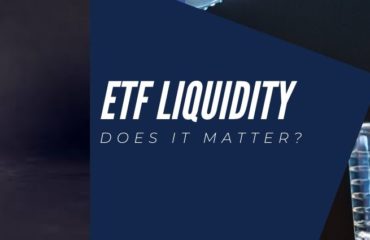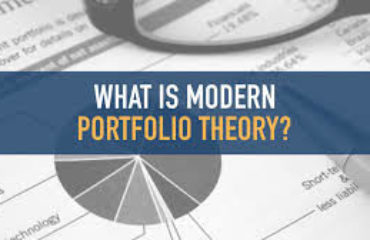I love watching cooking shows. It doesn’t matter that I don’t cook. I watch for enjoyment sake, and perhaps for the comfort of knowing that in a cooking emergency, I will be able to put something together. One concept that I always get fascinated by is that of ‘deconstructed’. Chefs separate or deconstruct the ingredients and then ‘re-interpret’ the combination, presenting it in a modern way. Interestingly, they deconstruct classic dishes, the ones that have lasted through the ages with good results.
I propose that we try this idea with mutual funds research. In the two decades that I have been part of the industry, funds research has been done the same way in spite of continued criticism that the process isn’t transparent, and more importantly, the results haven’t been good. I think deconstruction will highlight the process to all stakeholders and hopefully, improve the results.
Deconstruction will improve transparency
Currently, funds research is conducted by a variety of players. In some cases, we see the result of the funds research process as a rating symbol (like 5-stars, A, Gold etc) available publicly, while in the case of institutional consulting firms, wealth intermediaries and asset owners ,we don’t. The issue with all of these is the output may look the same but the processes used, and results achieved, vary widely. Everyone says they look at factors such as people, process, parent, portfolio and performance (5 Ps), yet they come to different conclusions. This leaves investors confused.
Let’s deconstruct the process of how rating firms and consultants look at the 5 Ps. They look at offer documents, conduct quantitative analysis of historical data, get a written response to a research/due diligence questionnaire, interview the fund manager and other staff, and then finally conduct an operational due diligence audit on short-listed firms. Some firms are not as comprehensive as this; their process depends on their philosophy on what they consider important.
What if we make the component parts available separately? Interested investors should be able to see the raw data, quantitative analysis etc separate from the analysts’ opinion of the portfolio manager. Deconstruction will highlight any issues with the components and thereby, ensure transparency.
Re-interpretation will highlight the essence
Remember the expert chef deconstructs a classic dish into its component ingredients but also puts them together again, thereby reinterpreting the dish. So deconstruction is shorthand for ‘deconstruction and reconstruction’.
Similarly, I am not suggesting that everyone has the time or expertise to interpret the components; I am suggesting that we then hire investment experts to reinterpret the components to come up with a final opinion. Far from reducing the importance of the chef, or the analyst in this case, the deconstruction/reconstruction process will highlight the essence. The essence is the investment philosophy and the analysts’ expertise.
- The investment philosophy covers the fundamental beliefs on how markets work and how one can make alpha (extra returns over the market), if any. Do you believe the markets are efficient? How are they inefficient? How can one profit from the inefficiency; what factors should one look at? Even if you discover sources of alpha, are you able to capture it after fees and costs?
- The analyst expertise means the qualitative inputs. For example, the investment philosophy for funds research might state that the fund/portfolio manager should have a clearly-articulated stock-picking philosophy, and a humble temperament. So the fund research analyst to subjectively assess whether the philosophy was well articulated (and proven) and the portfolio manager has a humble temperament.
Well-resourced investors have already started doing this by hiring in-house experts to interpret data and third-party opinions on investments, operational due diligence etc separately. I believe it’s time we offer this transparency to retail investors too using technology.
Technology makes it viable for broader market
Currently, retail investors have to rely on rating symbols like 5 stars, which is dangerous. I also believe that the reason there isn’t more funds research providers available is because the most basic component – historical data – is not easily available. Access to the fund/portfolio manager is restricted to the more influential raters, and rightly so. The fund manager should spend more time managing portfolios rather than answering questions from every distributor/adviser or media outlet. Yet we can’t give up on active funds – they are too important for capitalism and society to work.
I think technology offers a solution. In the era of XBRL reporting, it should be easy to make all fund data freely available to anyone who wants to research funds. The process of collecting answers to research and due diligence questionnaires is already being streamlined. The operational due diligence audit reports should be made public.
We can also record fund manager interviews and make them available online. Note the expertise of the interviewer matters; an inexperienced journalist may not be able to extract the same insights from the fund manager that a qualified and experienced analyst would. Anyone who has seen a good panel discussion go flat because of the inexperience of the moderator will understand the point. Remember, the research interview is not aimed at retail investors; it’s for the benefit of the expert who will re-interpret and put together the components for his retail clients’ benefit.
I envisage the availability of platforms that allow investors to customise a rating using component parts in line with their own investment philosophy and time horizon. There will always be some institutional investors or rating/consulting firms that want to build their own component parts. Hopefully, they are smart enough to limit their customization to 10-20% of the process where it makes a difference.
In conclusion, I believe it’s not just interesting to apply the concept of deconstruction to funds research; it’s sorely needed. It will lead more transparency and democratisation, which in turn has the potential to make funds less beholden to the whims of influential rating houses and act more long-term. Retail investors will benefit from having more transparent providers of ratings to help with funds selection.





You must be logged in to post a comment.